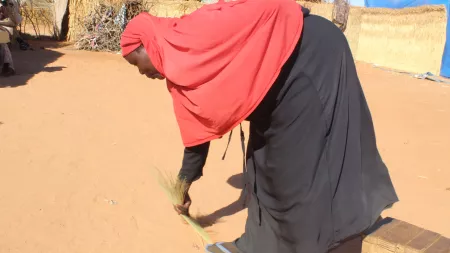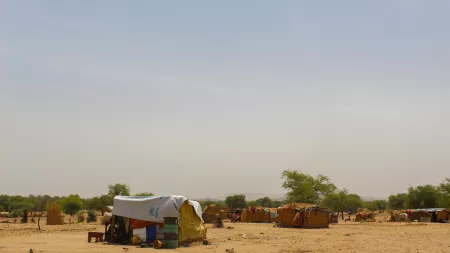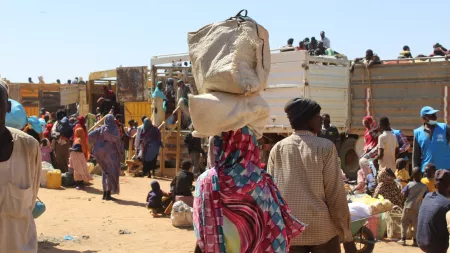N'Djamena, Chad, Feb 1st – The humanitarian crisis in Chad, currently hosting the largest number of refugees fleeing the conflict in Sudan, has reached a critical juncture. The humanitarian needs for the refugees, returnees, and host communities are rising every day against the backdrop of a lack of global attention and financial support. By the end of 2023, barely 35% of the Humanitarian Response Plan in Chad had received funding. Of the more than 542,000 refugees in Chad, 87% of them are women and children.
As the number of refugees increases daily, we are witnessing overcrowding in the camps, forcing families to endure dire and unsafe living conditions.said Dr. Amadou Bocoum, CARE International in Chad Country Director.
"In Ourang camp, at the border of Chad and Sudan, over 7,000 individuals have lived in community shelters for more than six months. For those fleeing from Sudan, access to clean water, food, and sanitation is severely limited. Nevertheless, despite their limited resources, host communities generously shared the little they had. CARE is particularly concerned about the increased risk of exploitation women and girls face as desperation mounts. Survivors who made it to the camps share harrowing tales of what they experienced as they fled from their homes,” added Bocoum.
"We have nothing"
Mariam*, a 35-year-old Sudanese woman from the town of Djinéné, arrived in Chad to escape the violence seven months ago and has since been living in a camp near the border with eight family members. Explaining what forced her to flee, she said: “Our village was burnt down, and our belongings were looted.”

She described a long three-week journey to Chad, during which time she was denied a place to stay, and one of her daughters was shot and injured. “When I arrived in Adre I was given some clothes and even shoes, as I had trekked barefoot. One of my daughters died of illness at the camp. We started building a shelter using local materials [grass] and buying small portions of sorghum to eat. We urgently need better shelter.” She added: “We have nothing. All assistance is needed and welcomed.”
Similar stories like these can be heard across the camps on the border as many describe losing family members and fleeing with only their children and clothes on their backs. As the number of Sudanese entering Chad increases, the refugees have been setting up settlements in spontaneous locations in the eastern provinces of the country. Even before the Sudan conflict, over 1.9 million people in eastern Chad needed humanitarian assistance.

From a health perspective, the situation is incredibly challenging as well, with an increase in reported cases of malaria, respiratory infections, malnutrition, and diarrhea. As of 5th January, over 2,000 pregnant and lactating women as well as 32,000 children under the age of five years were found to be malnourished.
“Right now, the people need food, water, health care, and good living conditions. Humanitarian actors are mobilized and responding to meet their needs as best as possible. Despite this, more needs to be done. By the close of 2023, 65% of the response fund was not yet funded with health and nutrition being the least funded clusters. The international community cannot turn a blind eye to the plight of vulnerable women and girls in Chad. The future of the refugees in Sudan hinges on providing for the refugees and the host communities,” said Dr. Bocoum.
CARE's work in Chad
CARE Tchad has been involved in responding to the unfolding crisis at the border since the beginning of the conflict in Sudan. Support provided so far includes the construction of 234 latrines, the distribution of cash to 20,100 people, and hygiene and sanitation awareness campaigns.
For media inquiries, please contact Iolanda Jaquemet, Senior Humanitarian Communications Coordinator, CARE International via: [email protected]
